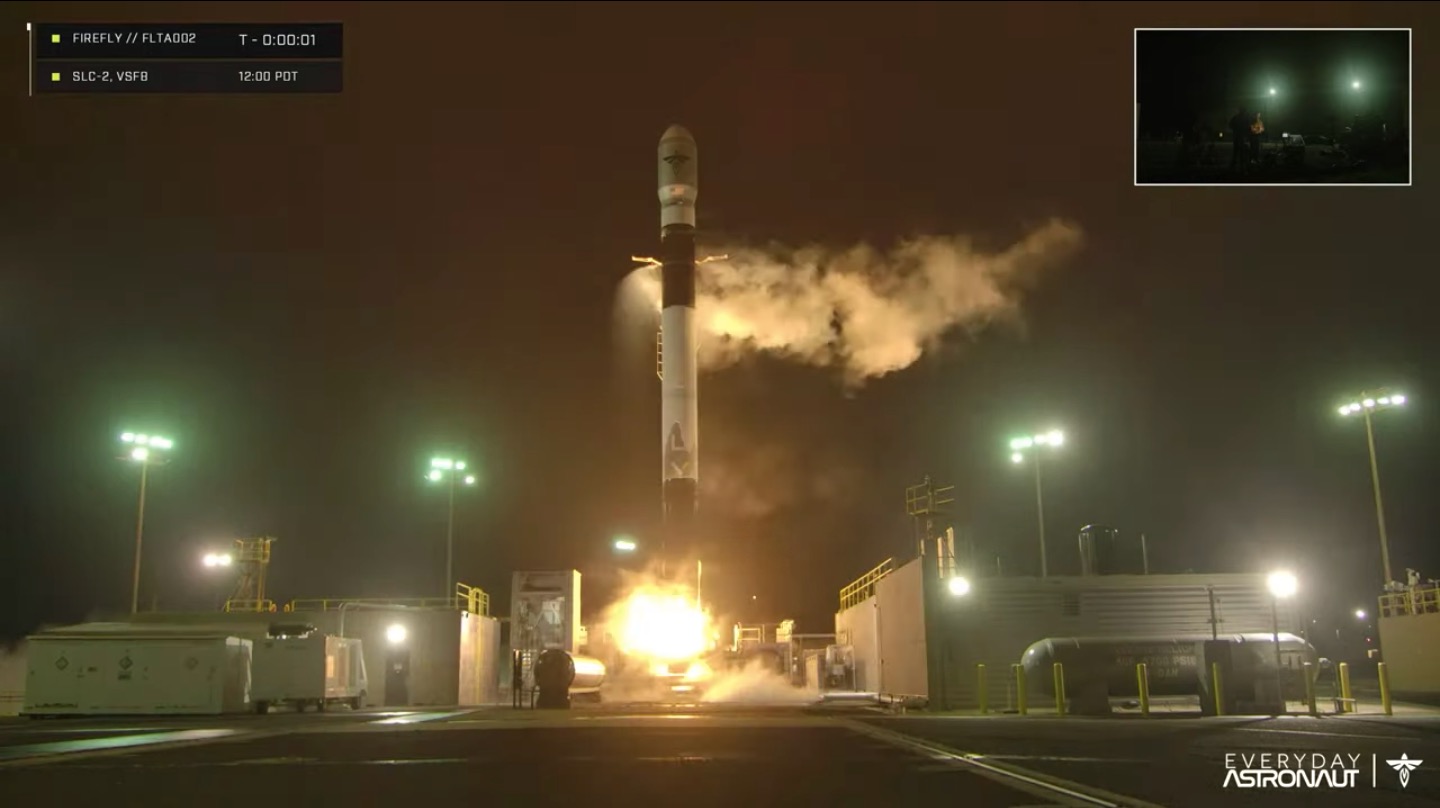Firefly declares Alpha rocket launch success despite satellites falling back to Earth
The second Alpha launch inserted payloads into lower-than-intended orbits.

Firefly Aerospace claims the recent launch of its Alpha rocket was a success, despite its three satellite payloads reentering the atmosphere just days later.
The second flight of the 95-foot-tall (29 meters) Alpha rocket took place on Oct. 1, lifting off from California's Vandenberg Space Force Base and successfully inserting three satellites into low Earth orbit.
However the satellites appear to have been placed into lower orbits than the planned circular, 186-mile (300 km) altitude orbits noted in the press kit, SpaceNews reports, resulting in the early loss of the satellites.
Related: Relive Firefly's 1st successful rocket launch with highlight reel (video)
Space object tracking data from the U.S. Space Force's Space-Track database shows that three of four objects related to the launch had already reentered the atmosphere on Oct. 5, while orbital parameters for the fourth suggest it would also have reentered.
Despite this, Firefly, which is based in Austin, Texas, said the launch was a success. "First stage and second stage performance was in-line with our flight two requirements and therefore successful," the company said in response to questions from SpaceNews.
"Our data review continues, but we are excited by our preliminary review showing that we will only need to make very minor tweaks for our next mission," the company added.
Breaking space news, the latest updates on rocket launches, skywatching events and more!
The article notes that Seradata, a firm owned by space traffic management company Slingshot Aerospace that runs a leading satellite database, considers the launch a failure "due to the likely life loss for the seven satellites aboard when compared to their design lives."
Firefly's first launch in September 2021 ended in failure when one of its first stage engines shut down prematurely.
Firefly apparently considers achieving orbit to be a major milestone as the company seeks to prove itself a reliable light-lift launch service provider among a field of new launch companies in the U.S. A number of launch startups are also aiming to reach orbit in Europe and China.
Follow us on Twitter @Spacedotcom or on Facebook.

Andrew is a freelance space journalist with a focus on reporting on China's rapidly growing space sector. He began writing for Space.com in 2019 and writes for SpaceNews, IEEE Spectrum, National Geographic, Sky & Telescope, New Scientist and others. Andrew first caught the space bug when, as a youngster, he saw Voyager images of other worlds in our solar system for the first time. Away from space, Andrew enjoys trail running in the forests of Finland. You can follow him on Twitter @AJ_FI.
